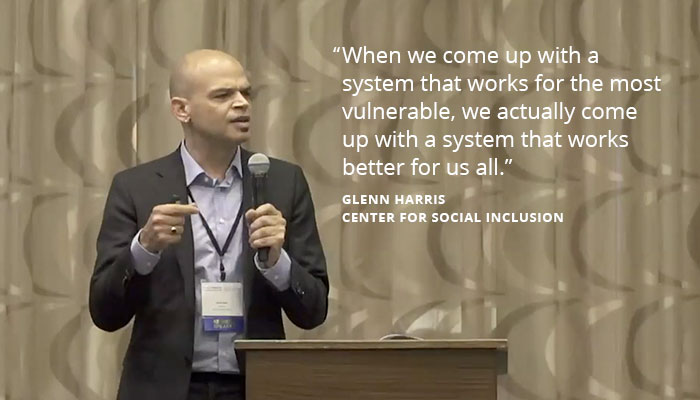According to the Robert Wood Johnson Foundation, systems are the practices, policies and procedures of institutions, corporations, agencies and other organizations that influence the determinants of health. Improving systems—and the way they work together—is our approach to eliminating health disparities. To change a “system” or create “systems change,” you must work on fixing the restrictions that make action possible. In this case, by improving policy around equity and the built environment, by educating stakeholders about the importance of integrating health and well-being into community development, and by empowering residents’ voice to lead community improvements, the system can be shifted to make it easier to create thriving neighborhoods.
The Invest Health initiative pushes city teams to think not only about their communities’ immediate needs, but also to think about how to make future efforts more accessible and streamlined with their efforts. As is true in any community, the systems’ developers, non-profits, healthcare organizations, and others operate to influence the pace and effectiveness of the work they get done. By looking at the way policy, practice, and social environment dictate processes, communities can both broaden the impact and streamline the implementation of key health and equity-focused community development efforts.
